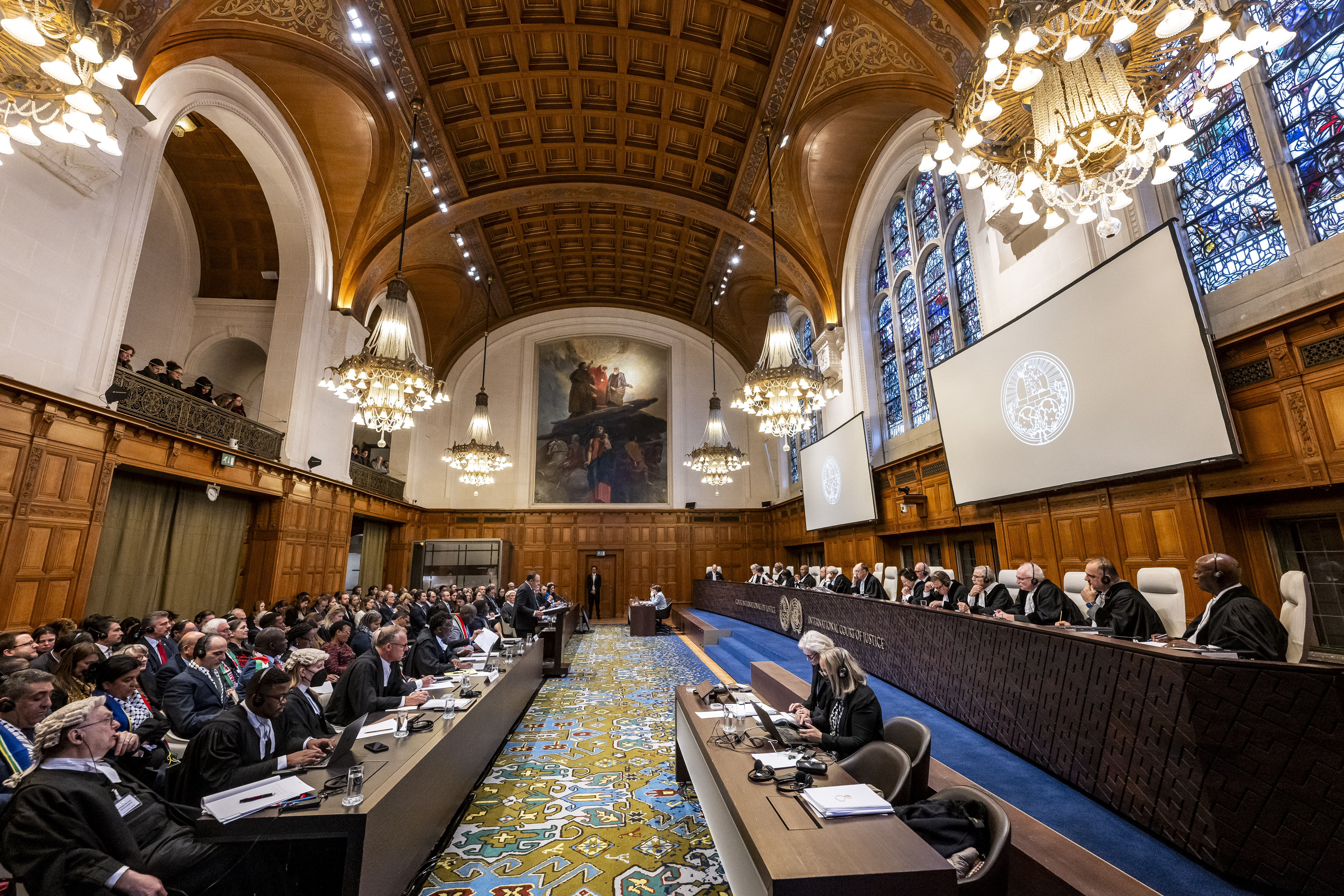Statement on the ICJ Decision On Provisional Measures
Prof. Amichai Cohen, a senior fellow at the Israel Democracy Institute and an expert in international law, made the following comments on the International Court of Justice (ICJ) decision today regarding provisional measures in the case of South Africa v. Israel on the Application of the Genocide Convention:

"On the positive side, the Court recognized the war in Gaza as a response to Hamas’ brutal attack on October 7. It did not order Israel to cease its fire, as requested by South Africa, and rejected several other South African requests for provisional measures.
On the other hand, the Court did not reject the application altogether, and the case will continue to move forward to the phase of merits. The Court ruled that at this stage of the proceedings, in which the threshold for the indication of provisional measures is relatively low, it is not rejecting South Africa’s allegations and ultimately, has ordered Israel to undertake a number of actions.”
From a preliminary analysis, Prof. Amichai Cohen says, that three elements of the Court’s decision should be noted:
"First, the vast majority of the ICJ judges conclude that at this point in the proceedings, at least some of South Africa’s allegations in regard to violations of the Convention on Genocide are plausible. In describing the situation in Gaza – the extent of death and injury, the extent of destruction and displaced persons, the humanitarian strife – the Court heavily relies on statements and reports by various UN officials and agencies. It also emphasized the great urgency in the provisions it issued.
Second, the Court issued a number of provisional measures intended to protect the Palestinians in Gaza, ordering Israel:
- To take all measures to prevent any actions that would involve genocide.
- To ensure the IDF is not committing any acts prohibited by the Convention on Genocide.
- To take all measures to prevent and punish incitement to commit genocide.
- To enable the provision of urgently needed basic services and humanitarian assistance.
- To prevent the destruction of evidence relating to possible violations of the Convention.
- To submit a report to the Court on all measures taken to give effect to the Court's order within a month (South Africa requested a report within a week and then subsequent periodical reports).
Third, the decisions on the above provisional measures were reached with a large majority. It should also be noted that Judge ad hoc Aharon Barak—Israel's appointment to the Court—also voted in favor of the decisions regarding incitement and humanitarian aid (it is likely these are actions that Israel has already been undertaking in any event)."
Prof. Cohen emphasizes the operative significance of today's decision.
- "There is no immediate order for Israel to cease its fire—something that Israel feared.
- Israel is obliged to submit a report to the ICJ within one month, which means this matter will remain on the Court's agenda—it is not a "one time thing." The Court, in fact, invited South Africa to make submissions in the future.
- Especially against the background of the Court's extensive reference to the circumstances prevailing in Gaza (the extent of death and injuries, the extent of the destruction, the extent of the displaced and the humanitarian situation), the scarce reference to Hamas's responsibility is quite troubling, particularly the absence of any reference to Hamas' mode of operation throughout the war, of conducting its military operations from within the civilian environment and using the civilian population as human shields (there was brief reference to October 7, but Hamas' responsibility for the nature of fighting that ensued was ignored). This choice of the Court is concerning and largely reflects the current international discourse on the matter.
- From Israel's perspective, it is troubling that the Court's main source of information is various UN bodies and officials, such as the "special rapporteurs" and UNRWA, who suffer from a deep seeded bias.
- Indeed, Israel has an obligation to prevent and punish incitement to genocide. The statements of Israeli senior officials that the Court chose to quote are two statements by Defense Minister Yoav Galant from the beginning of the war, Energy Minister (at the relevant time) Israel Katz, and President Herzog. The Court formally ordered Israel to address the issue of incitement, and this may be Israel's first test, so to speak.
From Israel's perspective, the decision handed down was not the worst possible outcome, and it could even be presented as a victory in the sense that Israel was not commanded to cease fighting. But the proceedings that lies ahead, the fact that the ICJ largely relies on UNWRA's reports, and the fact that it determined that what Israel has done in order to alleviate the situation in Gaza is not enough, are all quite troubling.
In conclusion:
- The worst outcome of a cease-fire order did not materialize. This can be seen as a victory for the Israeli legal team.
- The ICJ delivered a clear instruction to take action on the matter of incitement to genocide. We will wait and see how the Attorney General will respond.
- There is a clear instruction to enable the provision of urgently needed basic services and humanitarian assistance.
- An interesting question is whether Israel will take the Court's statements into account in the continuation of the fighting. In any case, there is a likelihood that the case will be back on the table in a few weeks."
- In its conclusion - although not in the operative part of the decision - the Court expresses concern for the fate of the hostages held by Hamas and other armed groups in Gaza and calls for their immediate and unconditional release. At the same time, it must be remembered that Hamas and the other terrorist organizations in Gaza are not a party to this procedure, so this is call remains merely symbolic."
